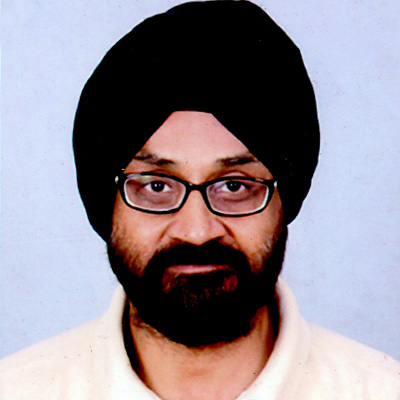Webinar on Urban Groundwater : ‘Sustainability, Recharge and Quality Challenges'
The event is now completed
Dates: September 6, 2022
Last Date to register: September 6, 2022
Time: 03:00 PM to 04:30 PM
Venue: Online- Zoom Platform
Language: English
Background
Groundwater’s near universal availability, dependability, and low capital cost make it a reliable water resource. Groundwater caters to about 40% of the water need of the world. The increasing dependence on groundwater and indiscriminate extraction in various parts of the country, without considering the recharging capacities of aquifers and other environmental factors leads to the depleting water level, contamination, and mismanagement of the resource. Understanding groundwater is central to addressing the imploding water scarcity that is hitting both urban and rural India and is exacerbated by climate change.
Urban water conservation is a priority given the water scarcity we face for our towns and the impact of climate change that is intensifying this water scar city as well as flooding risk. What is important is to understand and implement urban water conservation, from a use case perspective, of what a city needs, and not as a generic intervention of ground water recharge.
The priorities, needs and oportunities for urban water conservation vary across the different typologies and climate conditions and our cities. What Bengaluru needs in terms of water conservation and recharge measures, may not be a relevant for small towns of Odisha or UP.
Groundwater is related to aquifers. Do we have enough "Sponges" and do we know enough about urban geology to implement water recharge measures at scale in Indian cities? Mapping the aquifers is therefore important. To identfy both recharge potential as well as contamination risks. There is a need to identify and protect groundwater recharge sanctuaries if they exist, through the instruments of City Master Plans.
Urban ground water management is a governance and policy challenge for India. This webinar brings two experts, Prof Venkatesh Dutta and Prof Shashank Shekhar, to share this experience of ground water recharge and mangement in cites of India.
This webinar is a part of a 3-year duration CSE programme – 'Capacity building initiative focusing on ‘Making Ganga basin cities water sensitive', supported by National Mission for Clean Ganga (NMCG) and is part of the series of ongoing efforts by NMCG aimed at ensuring convergence of Namami Gange Mission with national flagship urban missions (AMRUT 2.0, Smart Cities, SBM 2.0, HRIDAY, NULM), and other missions (Atal Bhujal Yojana, Jal Jivan Mission, Jal Shakti Mission).
Aim
Capacity building, awareness and action research for promoting sustainable groundwater management and sustainable water resource.
Objective
- To develop better understanding of the context and role of the groundwater, aquifers in cities.
- Discuss emerging issues, challenges opportunities and solutions in cities.
Webinar Coordinator
Ms. Charu Upadhyay
Deputy Programme Manager
Water Programme
+91-11-40616000 (Ext: 312)
Email: charu.upadhyay@cseindia.org
| Agenda | |
| Download pdf | |
| Webinar recording | |
| Presentations | |
| Introduction GW webinar | |
| Inaugural Address and Context setting By: Depinder Singh Kapur Director Water Programme, CSE |
|
| "Mainstreaming Groundwater Management into City’s Master Plan: Meeting the Over-extraction, Recharge and Quality Challenges" By: Prof. Venkatesh Dutta, SEES Babasaheb Bhimrao Ambedkar University, Lucknow |
|
| “Urban Groundwater Sustainability, Recharge and Quality Challenges By: Prof. Shashank Shekhar, DU-Geology Department, University of Delhi |
|
| Flyer | |
 |
|
| Download flyer | |
| Target Audience | |
|
|
| Webinar Moderator | |
 |
Depinder Sngh Kapoor Director, Water Programme, CSE |
| Experts for the Webinar | |
 |
Prof. Venkatesh Dutta, (Ph.D) School of Earth and Environmental Sciences (SEES) Babasaheb Bhimrao Ambedkar University (A Central University) Lucknow (UP) INDIA |
 |
Prof. Shashank Shekhar (Ph.D) DU Department of Geology University of Delhi |

Share this article